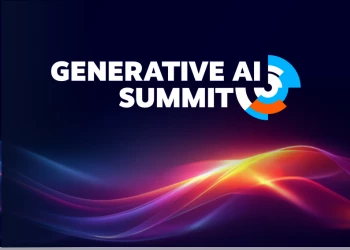AI Democratization Part One: Are Citizen Developers the Key to Applied AI Success?
How Data Democratization Fuels Enterprise Artificial Intelligence
Add bookmark
Applied Artificial Intelligence (Applied AI) is increasingly becoming a corporate superpower. From helping organizations to better diagnose and treat illness to the proliferation of algorithmic trading bots shaping our financial markets, AI is changing the way we live, work and play.
Though AI adoption is certainly on the rise, many applied AI implementations still fall short of expectations. In fact, as of 2019, 65% of executives worldwide reported that they were not yet seeing value from the AI investments. That same year, a BCG and MIT survey of more than 2,500 executives found that seven out of ten reported minimal to no impact from AI so far.
READ NEXT: Ford’s Data-Driven Roadmap Towards Future Mobility
For many organizations that, back in the mid-2010’s, felt inspired by the big tech companies to take on ambitious machine learning projects, operationalizing AI has been far more difficult than they initially imagined. There are multiple reasons for this but most boil down to two: data quality/accessibility challenges and the cost of deployment. As Techwire’s Dashveenjit Kaur puts it, “The full value of AI can only materialize when firms can offset their upfront costs of developing AI with substantial business gains from its wide scale deployment.”
Enabling and scaling enterprise-wide AI is essential for achieving ROI. As with any cutting-edge deployment, technical and cultural readiness go hand in hand. In the case of cognitive technologies, it’s especially important that ownership of these technologies is shared across the enterprise. Given the importance of AI to future business vitality, the age of the IT-reliant “business user” or customer may be ending. In all likelihood, we’ve entered the age of the “citizen AI developer.”
As defined by RedHat, the citizen developer is “typically an individual outside of the IT department (though he or she could potentially be an IT employee as well) who constructs business applications, but these applications remain within the guardrails established by IT. Citizen developers deeply understand what their business needs to succeed, and can identify and pursue the innovations that can take their businesses in new directions.”
Using low-code tools and other enabling technologies, companies can harness the power of citizen developers to embrace AI and apply it to their local environment, a process known as AI democratization. As an added bonus, by engaging as many people as possible, organizations can mitigate many of the challenges that plague AI development such as AI bias and programmer shortages.
READ NEXT: Apple vs. Facebook and the War Over Data Privacy
However, in order for this approach to work, these citizens have to be fully educated on the power and the limitations of cognitive technologies such as artificial intelligence, RPA and intelligent automation.
With this in mind, over the next 4 weeks, we’re going to explore how leading edge companies are cultivating a culture of innovation to drive enterprise AI. Key focus areas will include:
- Data Governance
- Low-Code Enablement
- Upskilling & Change Management
- The Citizen Developer in 2022 and beyond
Become a Member of the AI, Data & Analytics Network so you don’t miss any of these updates.

































